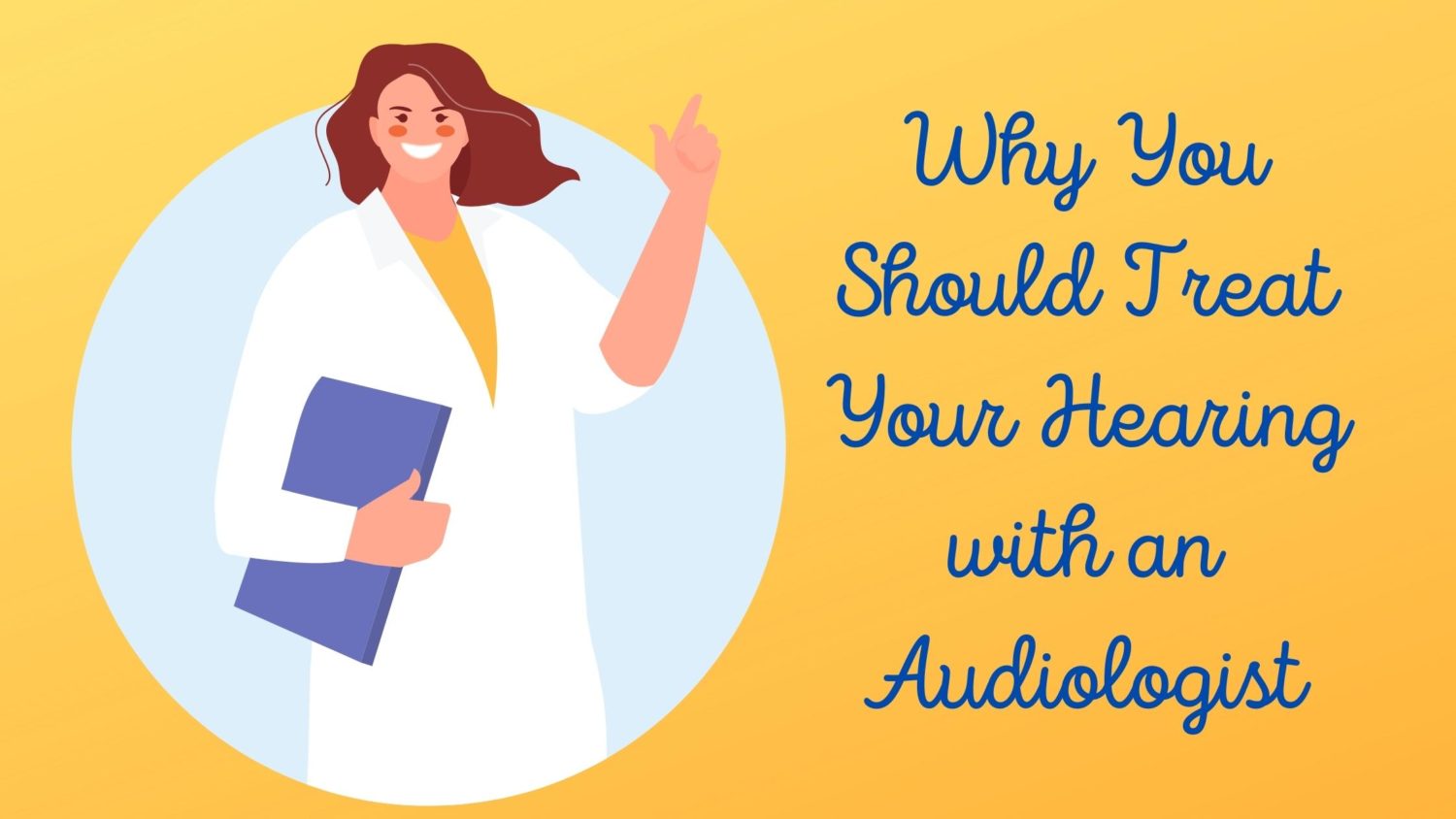- Are Cochlear Implants Worth It? - June 6, 2025
- Tips for Using Hearing Aids in Different Environments - May 27, 2025
- Rechargeable Hearing Aids vs. Battery-operated Hearing Aids - May 16, 2025
Hearing loss and hearing health issues are more common than you may suspect. According to the National Institute on Deafness and Other Communication Disorders, over 15% of people (of all ages) have some degree of hearing impairment in one or both ears. Additionally, 25 million adults report experiencing tinnitus – a buzzing or ringing-like noise in the ears – annually. Though hearing loss is pervasive, it is often underdiagnosed because it typically happens gradually so people may not readily notice the changes. Additionally, it can be difficult to acknowledge and address changes to hearing health. This is why it is so useful to see an audiologist who can effectively help you navigate and care for your hearing health.
What Does an Audiologist Do?
An audiologist is a healthcare professional that specializes in hearing health. They are specifically trained to diagnose, treat, and manage hearing-related issues in addition to balance disorders and other neural systems. Audiologists receive extensive training which includes a master’s degree in audiology, and many have a doctorate. Common issues they manage include:
- Hearing loss prevention, diagnosis, treatment, and management
- Dizziness and imbalance
- Selecting and fits hearing aids and other hearing devices
- Tinnitus management
Audiologists are trained in all aspects of hearing health and can provide comprehensive treatment that alleviates related symptoms and impairments.
Why Visit an Audiologist?
There are numerous reasons you should treat your hearing with an audiologist. If you are experiencing specific symptoms related to hearing loss, an accumulation of earwax, pain in your ears, dizziness etc., you absolutely should consult with an audiologist. A few major reasons why seeing an audiologist is useful includes the following:
- Diagnose Hearing Conditions
Hearing loss is one of the most common conditions that people experience today. Affecting over 48 million people, hearing loss results in a reduced ability to absorb and process sound. This produces a range of symptoms that can disrupt daily life and one’s capacity to manage personal and professional responsibilities with ease. Audiologists are highly trained to diagnose hearing conditions and provide effective treatment options. They are skilled at conducting the testing that identifies impairment and the degree of hearing loss you could be experiencing. This helps establish your hearing needs which allows them to assess the treatment options that would best meet those needs.
- Expertise & Individualized Care
Audiologists have the education and training to provide individualized care. This is critical because it is tailored to meet your specific hearing needs. Hearing loss and other hearing health-related issues are experienced differently by every person. It is important to be able to provide the treatment and knowledge that is specific to what the individual is navigating. Audiologists are able to perform this individualized care effectively.
- Hearing Aid Support
Hearing aids are the most common treatment for hearing loss. These are electronic devices that are designed to absorb, amplify, and process sound which provides ample hearing support. Like many electronic devices today, hearing aids have experienced significant innovation and now offer a wide range of technologies and features that maximize hearing and user experience. With countless options, it can be difficult to assess and know which hearing aids are best for you.
Audiologists are able to provide this kind of expertise around hearing aids. They are able to provide informed recommendations, training on usage, repairs etc. This wealth of knowledge is incredibly helpful in learning how to use and care for hearing aid devices.
- Long-Term Hearing Health Provider
Hearing health, much like physical health, changes over time. Visiting an audiologist allows you to have a healthcare specialist that is informed about your hearing health. Establishing this relationship is useful for long-term care, advice, support, and treatment. Your hearing needs can change and your audiologist is able to adjust treatment. Being proactive about hearing health is an important way to tend to overall health.
- Improves Overall Health
The treatment that audiologists provide can be life-changing. Enhancing one’s hearing allows them to navigate daily life with greater ease and control. This strengthens communication, relationships, social life, job performance, and general happiness. These benefits improve mental health and wellness as well as quality of life!
Looking for quality hearing health care services from an audiologist? We’re here to help! Contact us today to schedule an appointment.

